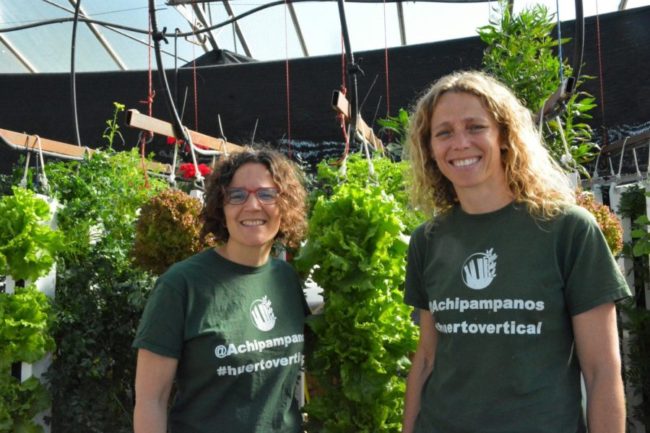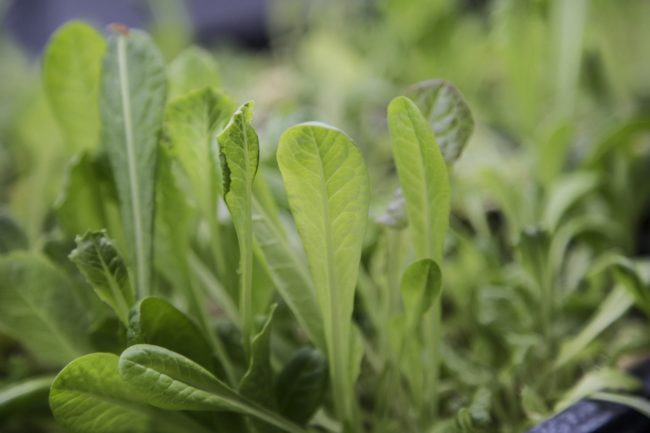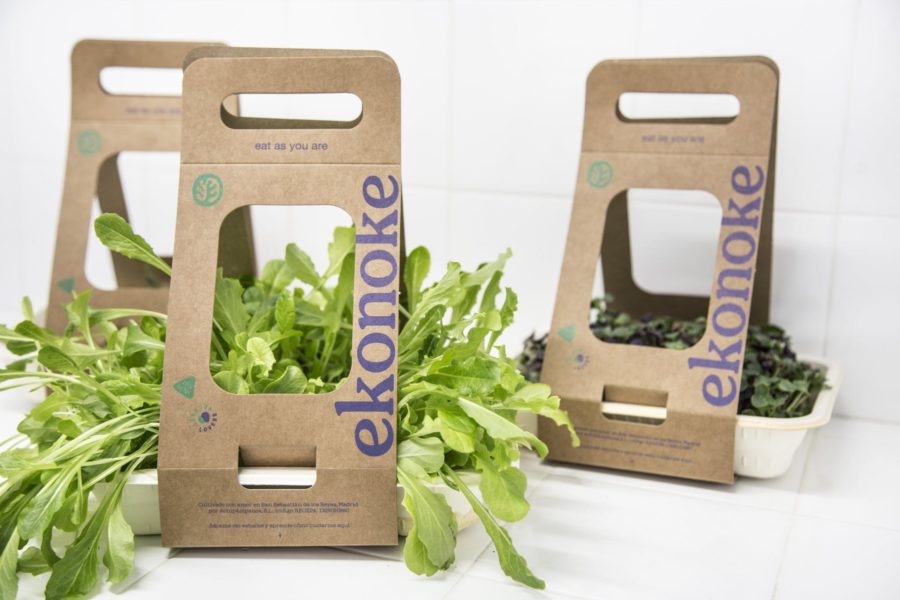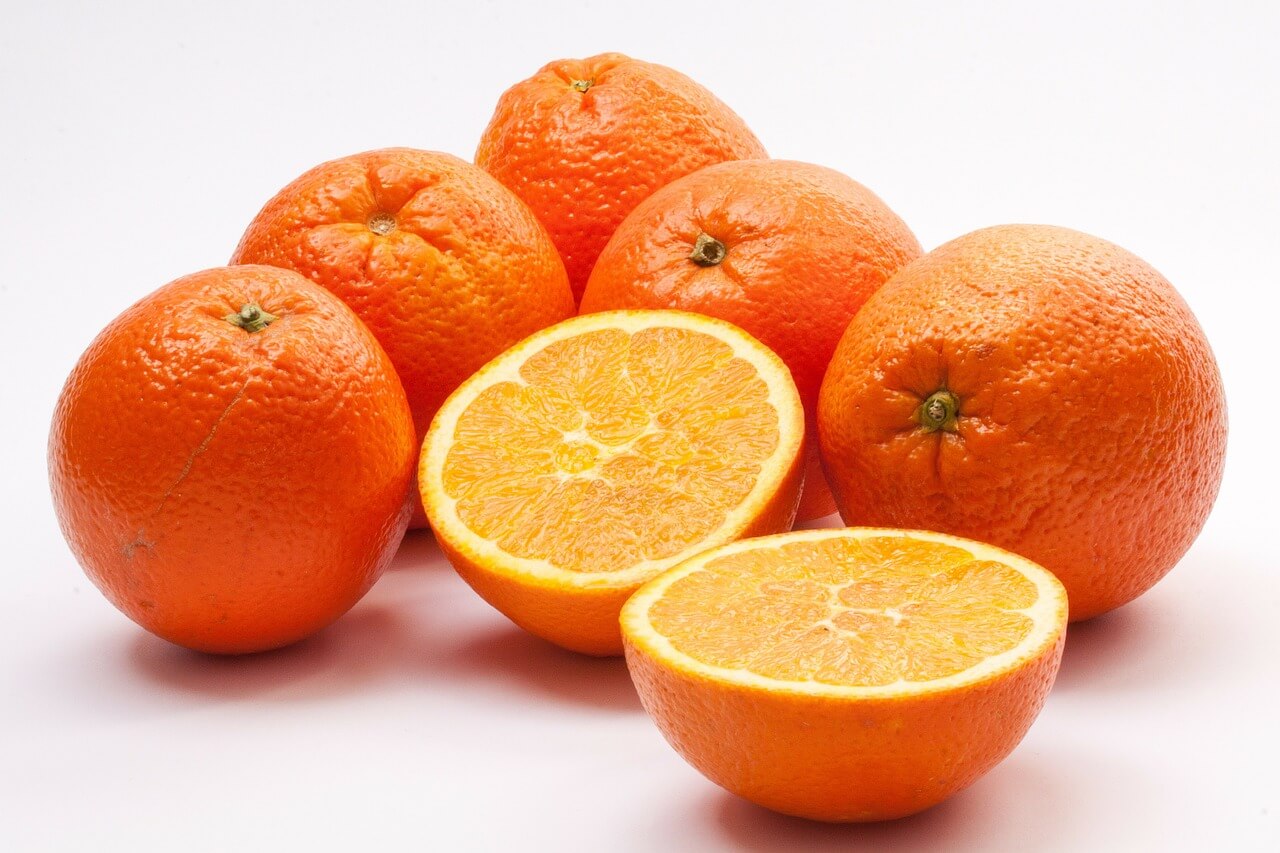ekonoke it is the agricultural model that is here to stay. We talk about vegetables that make the best use of space in an urban environment. The best thing is that once they grow up they take them to your home alive so you can enjoy them at your own pace. The proximity cultivation has taken on a new meaning. In addition, it can be interesting for the purposes of the climate change. Discover the revolution of happy lettuces.
The garden of the future
We move to San Sebastián, Cradle of ekonoke. In this town to 20 kilometers from Madrid there is an orchard that looks more like a laboratory. Several good-sized shelves become the perfect terrain for the vegetables you produce. Each of the shelves contains a tray with coconut fiber as the soil in which plants grow. They do not lack anything since they receive light from a LED placed just above the plants. In addition, they have a irrigation system that passes the nutrients underneath.

Once the vegetables of the trays are now ready for sale. As easy as sending them a message and wait for the order to be delivered to your home. In this way, you get a product fresh that preserves all the flavor and properties. The founders of the project emphasize that consumers are increasingly aware of the climate change. In addition, they are concerned that what they are putting into the body is a quality product. That is why they are offered as a feasible alternative.
Where does Ekonoke come from?
The passion of the cousins Ines Sagrario y Ana saez through the orchard it comes from their grandparents. They were both farmers and they discovered this world to the founders of ekonoke. However, they would be stunned when entering the peculiar "garden" of these women. Although the hydroponic cultivation It was already practiced in Babylon, it is something that was not used decades ago in Spain. It was not very difficult for them to start their business a year ago as they had experience. They had been working in a vertical garden for three years.

Thus, the consulting firm and the agronomist rented a nave in San Sebastián de los Reyes (Madrid). They did it together with two researchers from the Autonomous University of Madrid. His main idea was to supply the hostelry with a local and quality product. However, the pandemic caused them to end up selling their trays at home to whoever wanted them.
The first lettuce they were ready in March. However, the restaurants closed due to confinement decreed. In this way, they were forced to open a page of E-commerce. Their success was such that in just one day they ran out of stock. Having seen the triumph, his next step will be to open another grow room in a different autonomous community.
Happy lettuces
It is how the founders of the startup. The proximity thing is serious, since they only make deliveries to 50 kilometers around. With this they intend to save CO2 emissions and guarantee the freshness. In addition, the electricity that powers the bulbs that act as the sun comes from renewable energy. They can also boast that they don't use chemical fertilizers and that the coconut fiber used is recycled. This comes from agricultural waste. As a culmination it can be noted that they dispense with the plastic single use only.

Thus, it is an ecological product that grows throughout four weeks. Once they are ready for sale is when you can continue to keep them alive wherever you want before consuming them. You will be able to enjoy the four servings of lettuce containing one tray per 3'99 euros. The other option they offer is called Micro greens. It is a tray that costs 5'99 euros and containing pea, mustard, coriander and radishes. Once you have finished them you can discard the tray, which is totally organic y compostable.
As you can see, it is an interesting method that does not need large amounts of means to produce food. It may be interesting to expand it not only to save polluting emissions but also to free ground. There is land currently devoted to agriculture that could be used to create reserves of the biosphere. Time will tell if it is necessary to implement it en masse in a country like ours, where the desertification every time it will be a more latent problem. ekonoke it is the future.






